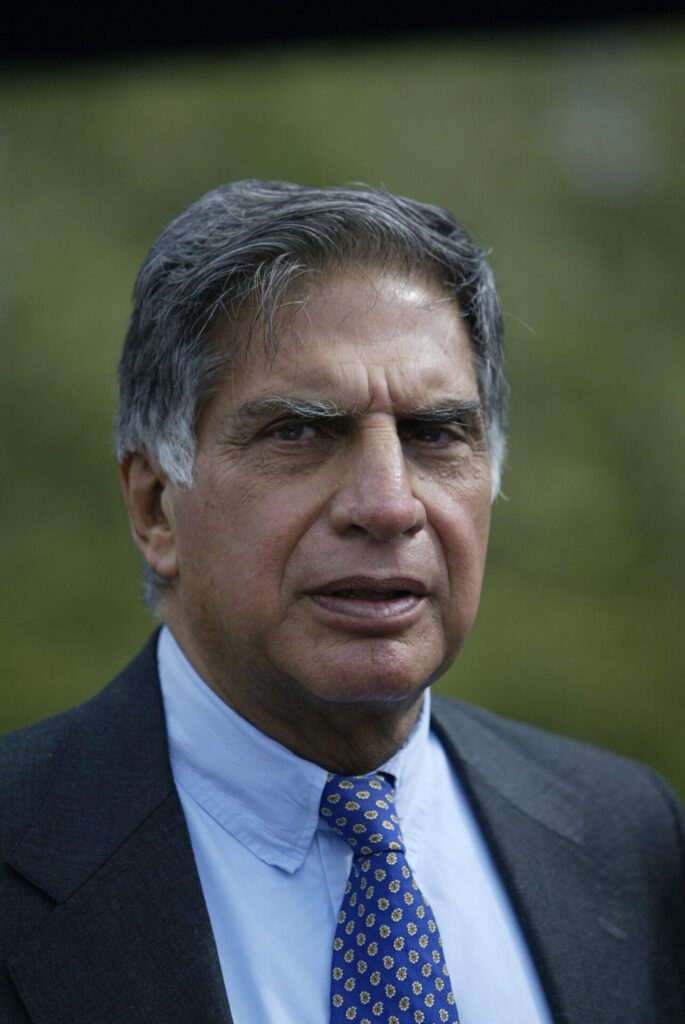
Introduction : Ratan TATA
Ratan Tata, a name synonymous with leadership, innovation, and philanthropy, stands tall in the world of business. As the former chairman of Tata Sons, the holding company of the Tata Group, Ratan Tata transformed a family business into a global conglomerate. His visionary leadership and commitment to ethical business practices have made him a role model for aspiring entrepreneurs and business leaders. This article delves into Ratan Tata’s journey, his key achievements, and the invaluable business wisdom we can glean from his life.
Early Life and Struggles
Born on December 28, 1937, in Mumbai, Ratan Naval Tata came from a family with a rich legacy. His great-grandfather, Jamsetji Tata, was the founder of the Tata Group, and his father, Naval Tata, played a significant role in the business. However, Ratan’s childhood was not without challenges. His parents separated when he was just ten years old, leading him and his brother to be raised by their grandmother, Lady Navajbai Tata.
Ratan Tata’s education began at the Campion School in Mumbai, followed by the Cathedral and John Connon School. He later attended the Bishop Cotton School in Shimla before moving to the United States. He graduated from Cornell University with a degree in architecture and structural engineering in 1962 and completed the Advanced Management Program at Harvard Business School in 1975.
Despite his prestigious background, Ratan Tata faced skepticism when he joined the Tata Group in 1962. Starting as an apprentice on the shop floor of Tata Steel in Jamshedpur, he learned the intricacies of the business from the ground up. His early years were marked by hard work, learning, and overcoming the preconceived notions that he was just a privileged heir.
Career Highlights and Achievements
Ratan Tata’s career is a testament to his visionary leadership and business acumen. His journey within the Tata Group began in earnest when he was appointed Director-in-Charge of the National Radio and Electronics Company Limited (NELCO) in 1971. Despite facing numerous challenges, including labor issues and financial losses, Tata managed to turn the company around, showcasing his problem-solving skills and resilience.
In 1991, Ratan Tata succeeded J.R.D. Tata as the chairman of Tata Sons. This transition marked the beginning of a transformative era for the Tata Group. Under his leadership, the group expanded its footprint globally, acquiring several high-profile companies and making significant strides in various industries.
One of Tata’s most notable achievements was the acquisition of Tetley Tea in 2000, making Tata Tea the second-largest tea company in the world. This was followed by the acquisition of iconic British car brands Jaguar and Land Rover in 2008, cementing Tata Motors’ position on the global stage. The purchase of Corus, a major European steel producer, in 2007 further exemplified Tata’s vision of making the Tata Group a global powerhouse.
Beyond acquisitions, Ratan Tata’s tenure saw the launch of several innovative products. The Tata Indica, the first indigenously developed Indian car, and the Tata Nano, the world’s cheapest car, highlighted Tata Motors’ commitment to innovation and affordability. These ventures demonstrated Tata’s ability to identify market needs and develop products that cater to diverse customer segments.
Ratan Tata’s impact was not limited to business growth. He championed corporate social responsibility, ensuring that the Tata Group’s success translated into societal benefits. His philanthropic initiatives, particularly in education, healthcare, and rural development, have had a lasting impact on communities across India. The Tata Trusts, under his guidance, have been instrumental in funding numerous social projects, reflecting Tata’s belief in giving back to society.
Life Lessons and Inspirational Quotes
Ratan Tata’s life offers a wealth of lessons for aspiring entrepreneurs and business leaders. His emphasis on ethical business practices is perhaps the most significant takeaway. Tata’s belief that businesses should operate with integrity and fairness has been a guiding principle throughout his career. As he once said, “A company should never be judged by its profit, but by its ethics and the values it practices.”
Another crucial lesson from Tata’s life is the importance of innovation and risk-taking. His decision to launch the Tata Nano, despite the risks and challenges, exemplifies his willingness to innovate and take bold steps. Tata’s view that “Ups and downs in life are very important to keep us going, because a straight line even in an ECG means we are not alive” underscores the necessity of embracing challenges and learning from failures.
Tata’s leadership style also provides valuable insights. Known for his humility and approachability, he has always emphasized the importance of treating employees with respect and fostering a collaborative work environment. His statement, “If you want to walk fast, walk alone. But if you want to walk far, walk together,” highlights the value he places on teamwork and collective effort.
Ratan Tata’s commitment to social responsibility is another vital lesson. He has consistently advocated for businesses to play a role in societal development. His belief that “Businesses need to go beyond the interest of their companies to the communities they serve” reflects his holistic approach to business and philanthropy.
Additionally, Tata’s resilience in the face of adversity is a lesson in perseverance. Whether it was turning around struggling companies or navigating the challenges of global acquisitions, Tata’s ability to stay focused and resilient has been a key factor in his success. His quote, “None can destroy iron, but its own rust can. Likewise, none can destroy a person, but his own mindset can,” serves as a powerful reminder of the importance of a positive and resilient mindset.
Conclusion
Ratan Tata’s journey is a remarkable story of vision, resilience, and ethical leadership. His contributions to the Tata Group and his broader impact on society make him a revered figure in the business world. From transforming a family business into a global conglomerate to championing corporate social responsibility, Tata’s legacy is one of innovation, integrity, and compassion.
As we reflect on Ratan Tata’s life, it is clear that his principles and values offer timeless lessons for anyone aspiring to make a meaningful impact in the world of business. By embracing Tata’s philosophy of ethical leadership, innovation, and social responsibility, we can strive to create businesses that are not only successful but also contribute positively to society.
In the words of Ratan Tata, “I don’t believe in taking right decisions. I take decisions and then make them right.” This mindset of proactive decision-making, coupled with a commitment to values and resilience, can inspire us to navigate the complexities of the business world with confidence and integrity.
! This post is part of “Learning from the Life of Famous and Inspiring People”


